Flor de Milho Quilombo de Arte Project seeks to share knowledge and opportunities in Natal (RN) and Salvador (BA)
Working from the inside to the inside, Quilombo de Arte moves access and exchanges in the states of Rio Grande do Norte and Bahia
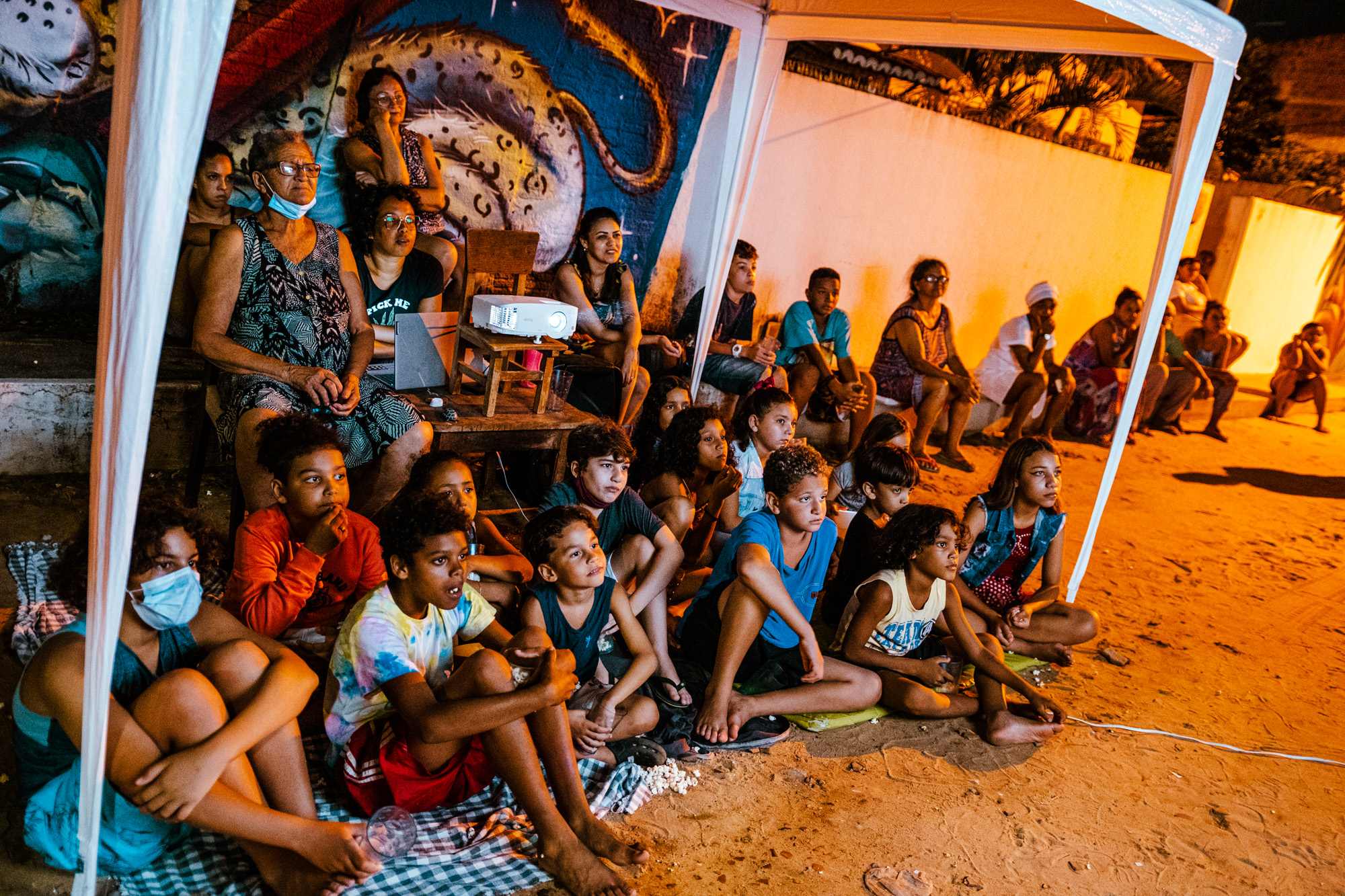

Credit: Thamise Cerqueira/Disclosure
By: Eduarda Nunes – Lupa do Bem / Favela em Pauta
Wherever she settles, Stéphanie Moreira brings people together to promote movements. That’s how she became one of the founders of Flor de Milho Quilombo de Arte, which today is headquartered in Salvador, Bahia, and Natal, Rio Grande do Norte.
Together with Inajara Diz, the initiative was born from the need to circulate access, information and knowledge among people who come from different social places, but who coexist collectively in this perspective of exchanges.
“It didn’t make sense for me to get there, me as a minority, of the minority, who is a black woman from the interior of Rio Grande do Norte with a son and a single mother, to get my doctorate and get there alone. And then, we got into this wave of sharing access”, says the anthropologist who, in 2017, had to migrate to Salvador to study at the Federal University of Bahia (UFBA).


“I felt very strongly that it was necessary to share my access because in the city where I lived I was one of the few black women who had access to the university and I wasn’t from there. Of the black women in the community, the majority did not even have access to graduation. When young people entered the UFBA space, they were chased or stopped at the door by security, so I, not having much money to support myself with my son, I had a doctoral scholarship to live there, and even then it was a very big asymmetry”, comments Stéphanie Moreira.
Afro fashion space: actions to share access to art and culture
It was in the space of Negro Charme, an Afro fashion studio, that some actions were taken to share access to art and culture, which Stéphanie was responsible for in addition to the university and her son at the time.
In addition, Inajara’s persistence was also essential for Flor de Milho Quilombo de Arte to emerge with its headquarters in the house where they lived.
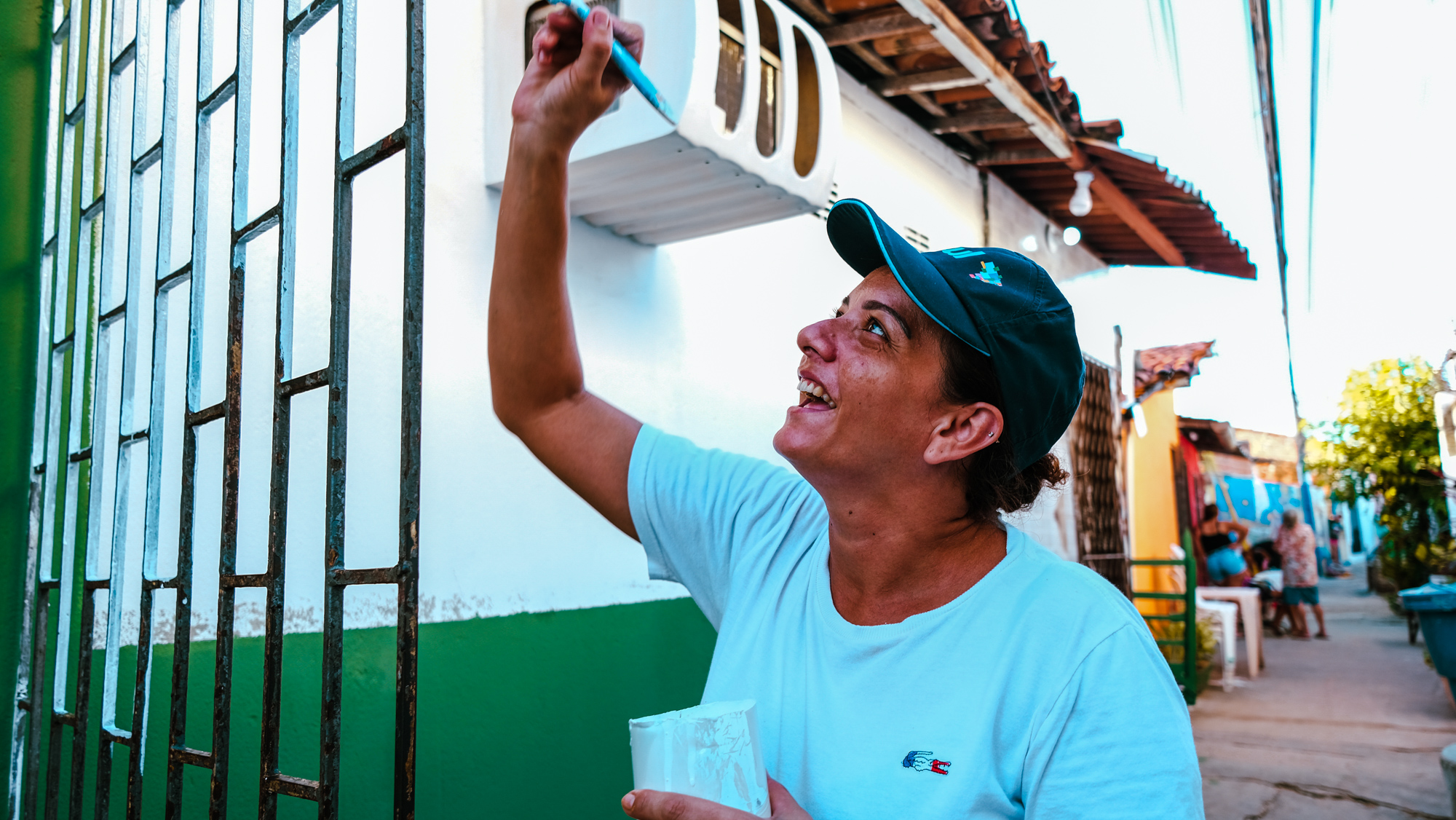

“We ended up getting to know each other at other crossroads and her desires were very similar to mine. She came from another outskirt of Salvador, but had lived in the community of São Lázaro for many years and also had this need to share access”, says Stéphanie. At the time, Inajara was studying a master’s degree in social communication at UFBA.
Flor de Milho Quilombo de Artes has affection, care and welcome as principles of political action. In Salvador, one of the main activities carried out was Escambo de Hospedagem, which offers accommodation to people who were passing through the capital of Bahia in exchange for training and workshops for the community of São Lázaro.
From this project, a great web of contacts and affection began to be nurtured with people from other countries.
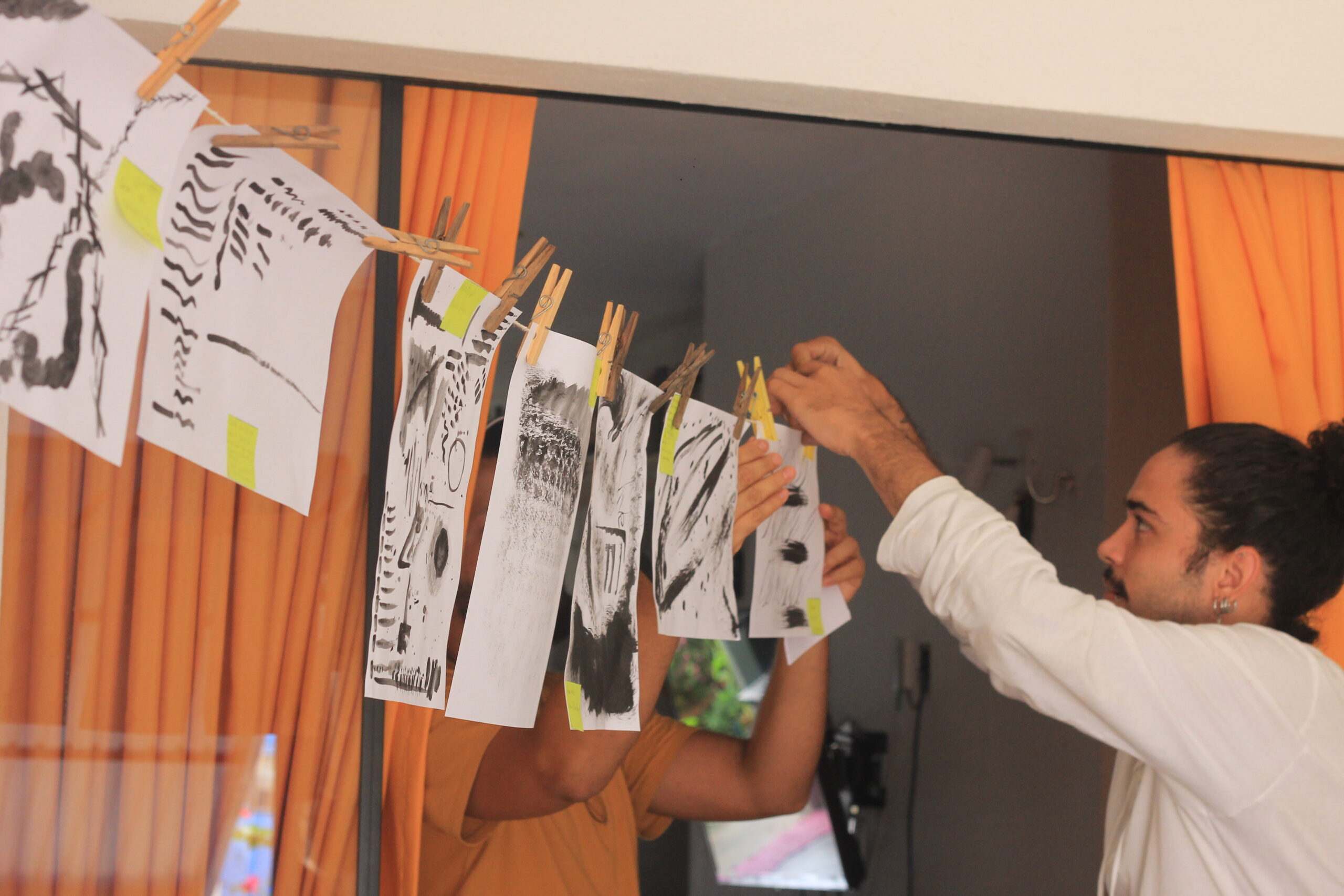

Experience and exchanges with people from other Latin American countries
It was this exchange of experiences that made it easier for Stéphanie and Inajara to carry out exchanges in other black territories for the first time. The first experience was in Medellín, Colombia.
In all, Flor de Milho Quilombo de Artes spent six months in the Colombian capital intending to exchange access and knowledge and leverage existing financial resources.
With Stéphanie’s return to Rio Grande do Norte in 2019 and the arrival of the Covid-19 pandemic, Flor de Milho inaugurated a new stage. Now also located in Alto do Belo Monte, the arts quilombo has faced other issues.
“Today we are part of a gap in the process of gentrification in the southern part of the city (Natal). We are about four streets squeezed between some luxury gated communities. […] there is a very strong real estate speculation concerning the community, there have been several attempts to evict it, but the residents have resisted”, says Stéphanie.
In this second headquarters, the first action, which continues until today, was the creation of the Dona Cora group, of studies in Capoeira Angola. Stéphanie and Omim d’Funfun, a non-binary trans person, coordinate this space.
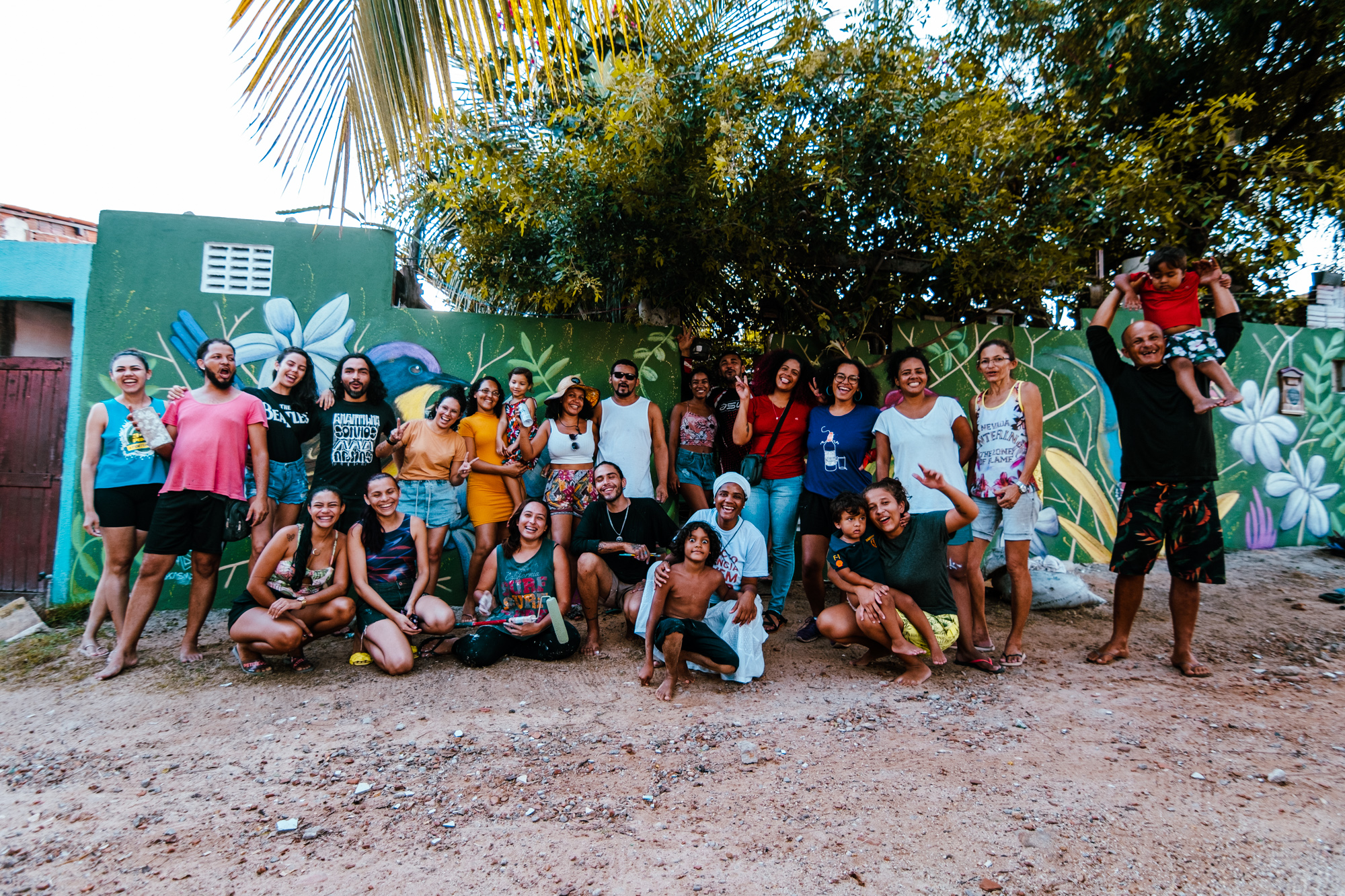

The territory of Alto do Belo Monte suffers a strong precariousness and social stigmatization and in the pandemic the effects were maximized for the residents, harming the lives and also the jobs of the people who live there. Being a resident, Stéphanie felt it firsthand when she found it difficult to run Negro Charme, clients would have to go to her studio and complained a lot about the location.
From this perspective, and with the support of the Aldir Blanc Emergency Law for the cultural sector, the Festival Cores do Beco emerged and directly benefited sixteen families in its first edition in 2021.
Artistic actions that encourage residents to belong
The project consists of painting and renovating the walls of the houses and creating murals that instil a feeling of happiness, belonging and pride in those who live in the area through art. In addition to rowing against the narrative of violence that exists in the area. “It’s aesthetics as a collective process of the place, involving the residents”, says Stéphanie.
From that festival, the community articulation was strengthened and today the headquarters in Natal has 11 members in the organization and elaboration of the activities together with the community. In 2022, the event had its second edition with the support of Coserne (Companhia Energética do Rio Grande do Norte) and the Câmara Cascudo Law to encourage a culture in Rio Grande do Norte. The event managed to contemplate more than 40 families.
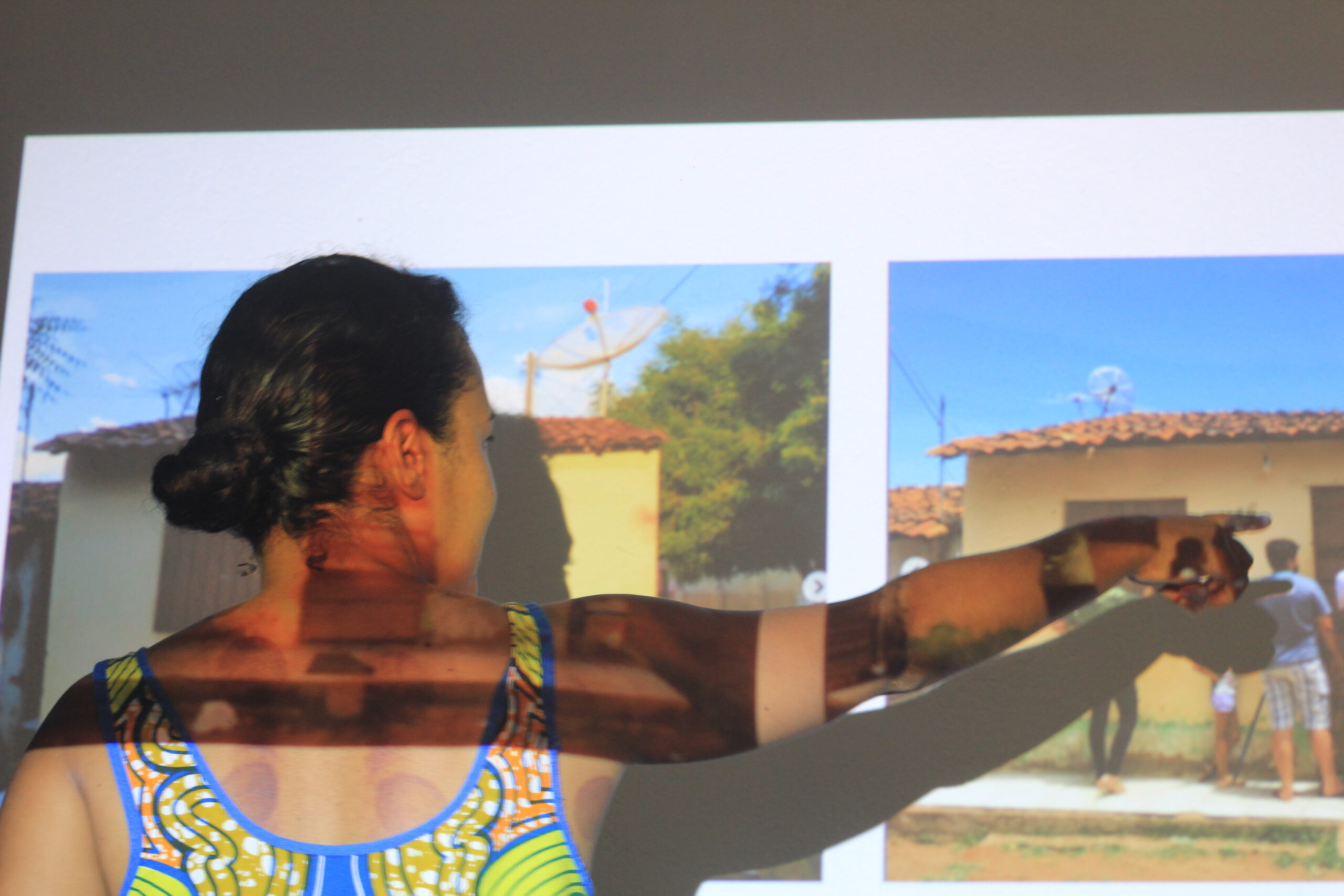
“The project grew very quickly, it more than doubled from one year to the next, right? And this is since we work from the inside in, we don’t work in the place of others, we live here”, says the artist and researcher.
The impacts of these actions can be measured by the change in the thinking of both residents and passers-by. If before, few people were afraid to go near Alto do Belo Monte, nowadays there is even a creative economy hub and black enterprises that introduce the place to people who are interested in getting to know it.
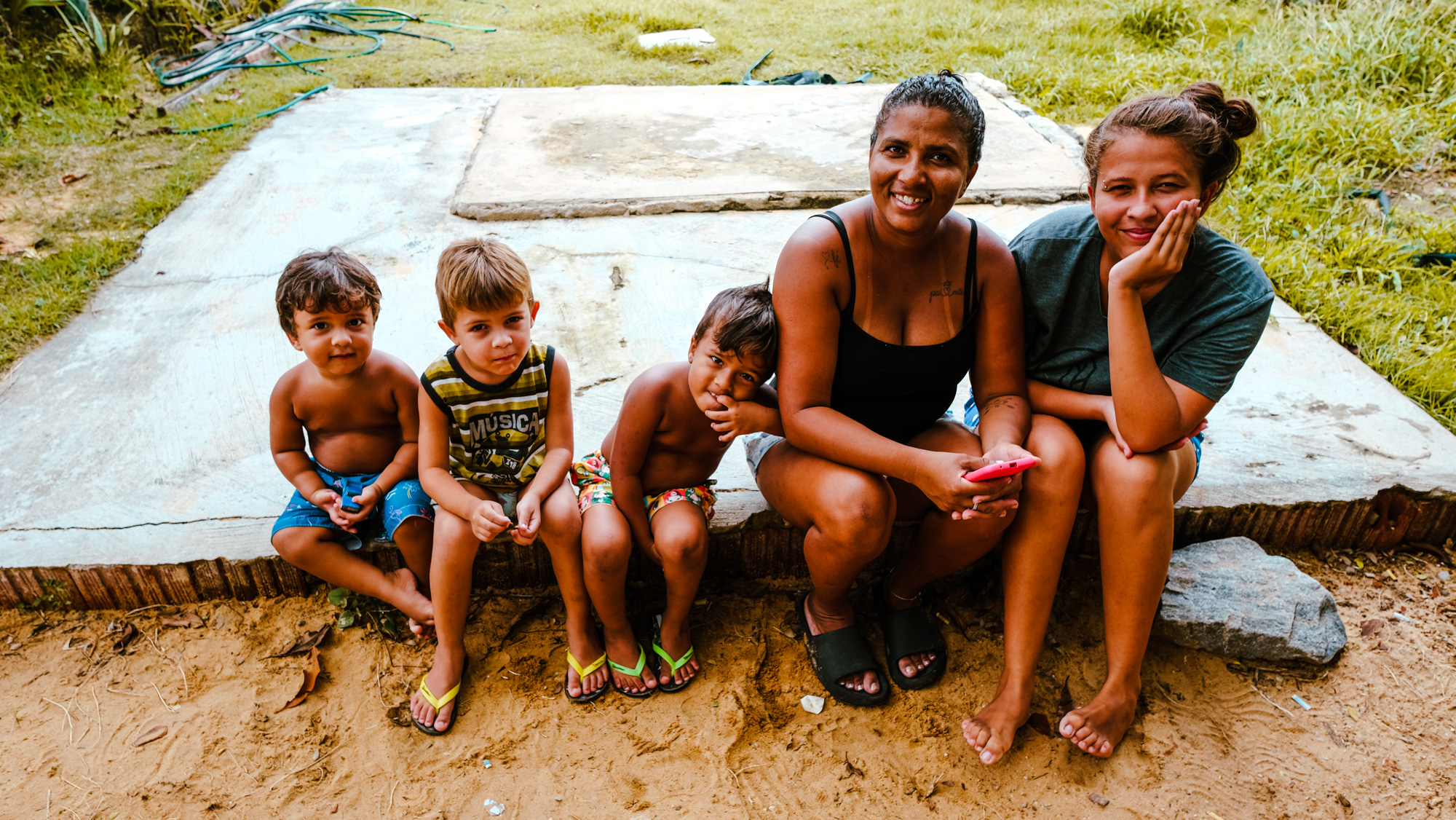

Quilombo Flor de Milho actions – support to multiply
Today, in addition to Negro Charme and Quilombo, the neighbourhood also has Casa Afro Poty, an initiative to dispute narratives about the peoples of the Potiguar territory, and other projects led by the other residents of the community.
To directly monitor and support the activities developed by Quilombo de Arte Flor de Milho, contact us directly through the project’s social networks.


